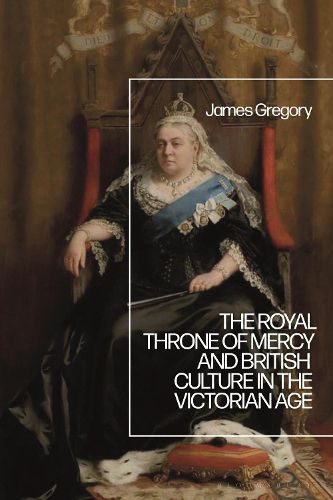Readings Newsletter
Become a Readings Member to make your shopping experience even easier.
Sign in or sign up for free!
You’re not far away from qualifying for FREE standard shipping within Australia
You’ve qualified for FREE standard shipping within Australia
The cart is loading…






In the first detailed study of its kind, James Gregory’s book takes a historical approach to mercy by focusing on widespread and varied discussions about the quality, virtue or feeling of mercy in the British world during Victoria’s reign. Gregory covers an impressive range of themes from the gendered discourses of ‘emotional’ appeal surrounding Queen Victoria to the exercise and withholding of royal mercy in the wake of colonial rebellion throughout the British empire. Against the backdrop of major events and their historical significance, a masterful synthesis of rich source material is analysed, including visual depictions (paintings and cartoons in periodicals and popular literature) and literary ones (in sermons, novels, plays and poetry).
Gregory’s sophisticated analysis of the multiple meanings, uses and operations of royal mercy duly emphasise its significance as a major theme in British cultural history during the ‘long 19th century’. This will be essential reading for those interested in the history of mercy, the history of gender, British social and cultural history and the legacy of Queen Victoria’s reign.
$9.00 standard shipping within Australia
FREE standard shipping within Australia for orders over $100.00
Express & International shipping calculated at checkout
Stock availability can be subject to change without notice. We recommend calling the shop or contacting our online team to check availability of low stock items. Please see our Shopping Online page for more details.
In the first detailed study of its kind, James Gregory’s book takes a historical approach to mercy by focusing on widespread and varied discussions about the quality, virtue or feeling of mercy in the British world during Victoria’s reign. Gregory covers an impressive range of themes from the gendered discourses of ‘emotional’ appeal surrounding Queen Victoria to the exercise and withholding of royal mercy in the wake of colonial rebellion throughout the British empire. Against the backdrop of major events and their historical significance, a masterful synthesis of rich source material is analysed, including visual depictions (paintings and cartoons in periodicals and popular literature) and literary ones (in sermons, novels, plays and poetry).
Gregory’s sophisticated analysis of the multiple meanings, uses and operations of royal mercy duly emphasise its significance as a major theme in British cultural history during the ‘long 19th century’. This will be essential reading for those interested in the history of mercy, the history of gender, British social and cultural history and the legacy of Queen Victoria’s reign.